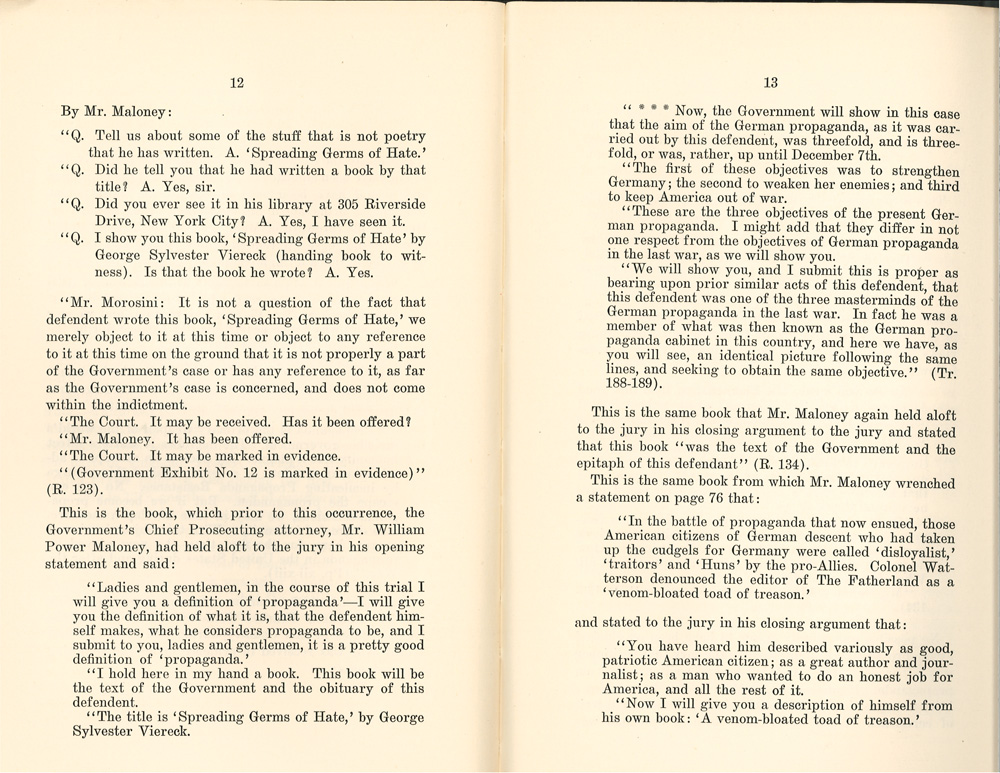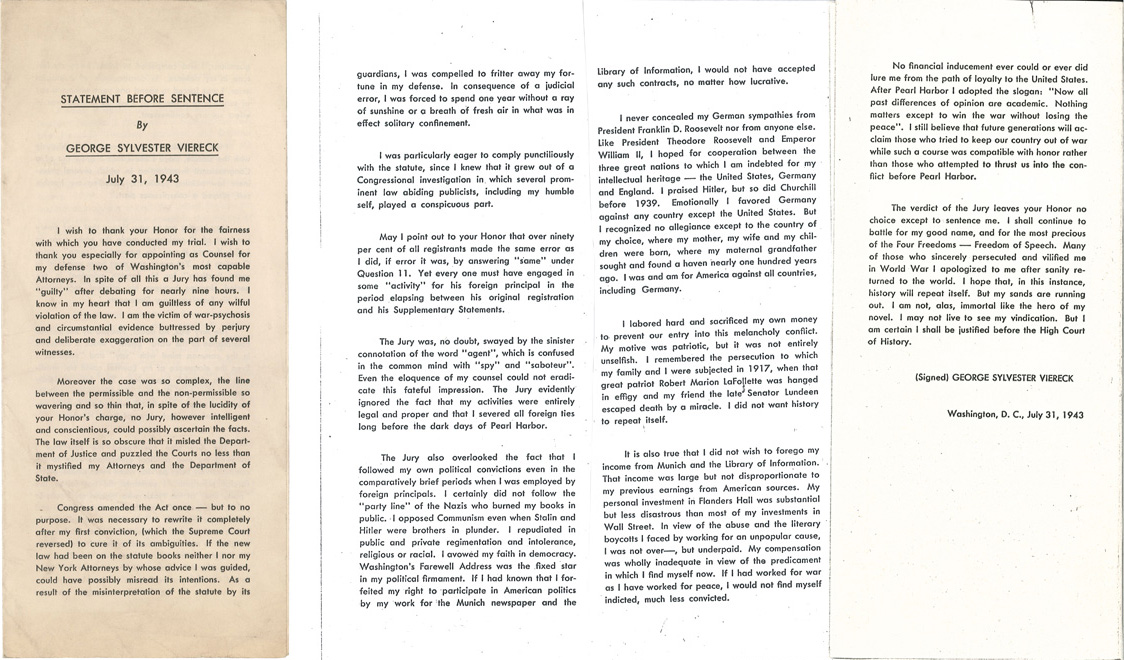George Sylvester Viereck was born in Munich on December 31, 1884, and was brought to the United States at the age of eleven. Viereck’s first book of poetry, Ninevah and Other Poems, was published in 1907. He also wrote Strangest Friendship: Woodrow Wilson and Colonel House, and, with Paul Eldridge, My First Two Thousand Years: The Autobiography of the Wandering Jew, Salome, the Wandering Jewess, and Glimpses of the Great, among other books.
By the time World War I broke out, Viereck had been already fairly well known for his verse, which appeared in both liberal and conservative periodicals in the United States. Viereck first came under attack for pro-German leanings as editor of the magazine Fatherland in 1914. When the United States entered the war, he changed its name to The American Monthly and turned its teachings against war in general. He urged that the objections of German-born Americans against shedding their relatives’ blood be respected by having them serve in some other capacity than as soldiers in the trenches. The Author’s League, the Poetry Society, and other organizations expelled him, but after war sentiment dissipated he began to appear again on lecture platforms.
Before World War II Viereck worked as a correspondent for a Munich newspaper and a free-lance writer for American magazines. He once described himself as doing what he could to better relations between the United States and Germany.
On the walls of his Riverside Drive study in New York he had photographs of Hitler, Dr. Joseph Goebbels, and Kaiser Wilhelm. All three, he said in an interview, had been his friends. “But I am no longer on speaking terms with some of them,” he added. In 1929 he had written of Hitler, “This man, if he lives, will make history.”
George Viereck was arrested in New York in October 1941 on charges of withholding from the US State Department information about his pro-German propaganda activities. He was charged with violating the Foreign Agents Registration Act. Viereck and his lawyer appealed his case all the way to the United States Supreme Court.

After his first appeal to the Supreme Court failed, George Viereck began serving his term of one to five years on July 31 1943 in the Federal Penitentiary at Lewisburg, Pennsylvania. His lawyer kept working on another appeal.

Eventually, the US Supreme Court reversed Viereck’s conviction on the grounds that he was not compelled to report his activities “except as an agent of a foreign government.” After serving three years and ten months in prison, George Viereck was released on May 17, 1947.
George Sylvester Viereck died at Mount Holyoke Hospital on March 18, 1962, at the age of 77.
Please check out the online finding aid of the George Sylvester Viereck Papers here:
http://www.lib.uiowa.edu/spec-coll/MSC/ToMsc100/MsC99/MsC99_viereckgeorge.htm